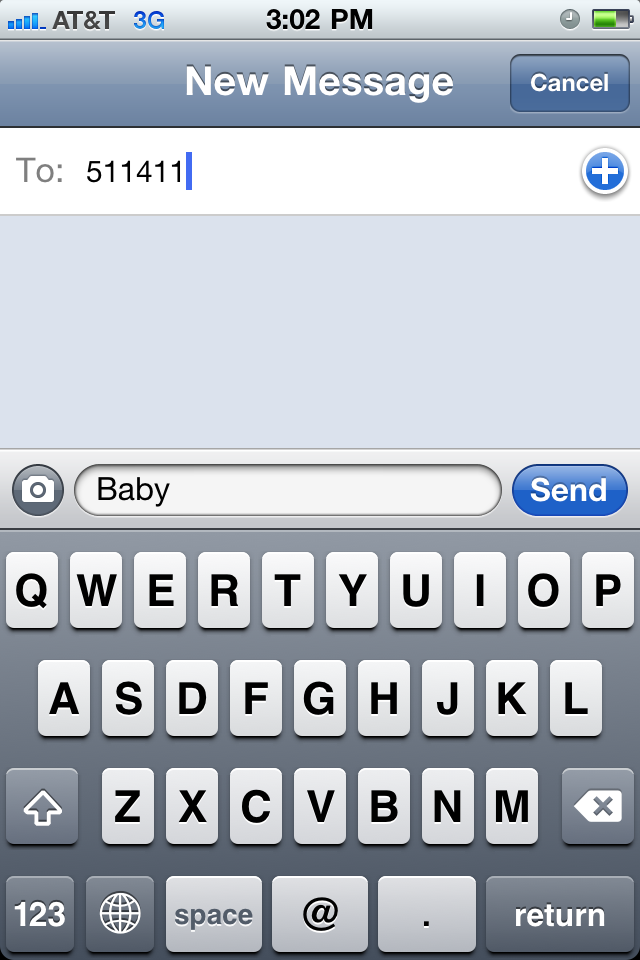Mobile Service 'text4baby' Shows Positive Results for New Moms

Researchers have found that text4baby, a free mobile service that provides pregnant women and new mothers in San Diego, California with maternal, fetal, and newborn health information via text messages, and connects them to national health resources has a positive impact on new mothers.
A free mobile phone service that provides pregnant women and new mothers with health-related information has had a positive impact, researchers have found.
Researchers at UC San Diego surveyed 122 users and interviewed 38 women using the text4baby service in San Diego County to gain insight into their satisfaction with the service and its ability to help them in various areas.
"Initial research indicates text4baby is increasing users' health knowledge, facilitating interaction with health providers, improving adherence to appointments and immunizations and strengthening access to health services," said Dr. Yvette Lacoursiere, MD, MPH at the university’s Health System Department of Reproductive Medicine.
Top Study Findings
- Women reported high satisfaction with text4baby, with Spanish-speaking women reporting even higher satisfaction scores than English'speaking women.
- 63.1 percent of women reported that text4baby helped them remember an appointment or immunization that they or their child needed.
- 75.4 percent reported that text4baby messages informed them of medical warning signs they did not know.
- 71.3 percent reported talking to their doctor about a topic that they read on a text4baby message.
"These results show that mobile technology is an emerging force in health care. Text4baby provides an easy, free service to patients with a variety of resources that improve the health care of both the new parent and their baby," said LaCoursiere.
The findings were presented at the American Public Health Association Conference in Washington D.C.
According to the authors, currently 2,200 individuals have enrolled and used text4baby in San Diego.
Mothers can enroll in the service by texting “baby” or “bebe” for Spanish, to 511411.
User Demographics
According to a release from the White House Office of Science and Technology Policy, participating mothers rated text4baby as an 8.5 out of 10 overall.
The study results are as follows:
- 81% have an annual household income under $40,000
- 65% are either uninsured or enrolled in California’s Medicaid program
- 63% said the service helped them remember an appointment or immunization that they or their child needed
- 75% said they learned a medical warning sign they didn’t know previously
- 71% talked to their doctor about a topic they read on a text4baby message
- 39% called a service or phone number they received from a text4baby message (this rose to 53% among individuals without health insurance)
Text4baby has reached nearly 250,000 people in the U.S., the White House Office of Science and Technology Policy reported.
Study Outlook
Additional evaluations will be made to fully understand the impact that text4baby has on mothers, the usefulness of mobile health technology, and the potential to expand mobile health technologies like text4baby, one evaluation includes the Department of Health and Human Services.
“The goal of this program evaluation is to examine the characteristics of women who utilize the Text4baby mobile phone-based program, to assess their experience with the program, and to determine whether enrollment in Text4baby is associated with healthy behaviors and timely access to health care during pregnancy and an infant's first year of life,” reads a notice by the Health Resources and Services Administration, on the Federal Register.
The Department of Health and Human Services said that this evaluation will help them understand the “usefulness of mobile health technology and the potential for expanding and/or adapting mobile phone messaging to additional health topics or conditions.”
“The study also may offer insight into planning and implementing similar projects.”
The study was done by researchers at UC San Diego Health System's Department of Reproductive Medicine and the National Latino Research Center (NLRC) at Cal State San Marcos University.



























